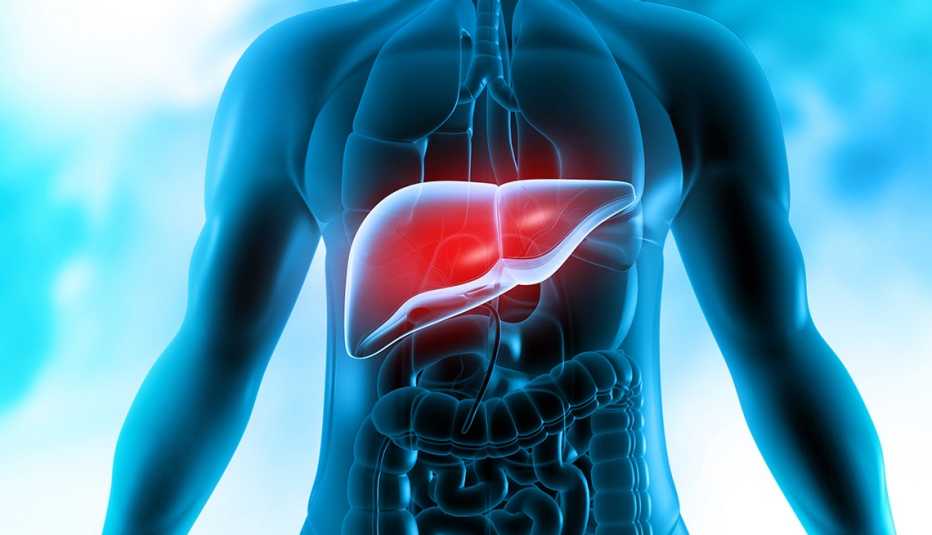Your liver, one of the largest organs in your body, plays a critical role in maintaining your overall health. It’s responsible for key metabolic processes, including detoxification, nutrient storage, and digestion. When your liver isn’t functioning properly, toxins can accumulate in your fatty tissues, leading to a range of health issues. Ignoring these warning signs can compromise your well-being, so understanding them and taking proactive measures to support liver health is essential.

Why Is Liver Health So Important?
The liver serves as a powerhouse organ in your body, performing functions vital to survival:
- Detoxification: The liver eliminates harmful toxins and waste from the bloodstream.
- Nutrient Storage: It stores essential vitamins, minerals, and nutrients required for proper body function.
- Digestion: It produces bile, aiding in the digestion and absorption of fats.
A sluggish or compromised liver can lead to toxin buildup, hormonal imbalances, and other health problems. Maintaining a healthy liver is key to optimal health.
16 Warning Signs Your Liver Isn’t Functioning Properly
Be alert to these warning signs, as they may indicate poor liver function and toxin accumulation:
- Chronic Fatigue: Persistent exhaustion may suggest your liver is struggling to filter toxins.
- Lethargy: Feeling constantly drained can signal liver inefficiency.
- Anxiety and Depression: Toxins in the bloodstream may impact your mental health.
- Improper Digestion: Symptoms like bloating, constipation, or diarrhea could point to liver issues.
- Frequent Headaches: A sign that your body is battling toxin overload.
- Chronic Muscle and Joint Pain: Inflammatory conditions may arise from poor liver function.
- Acne and Skin Conditions: Skin problems like rashes and acne can stem from toxin buildup.
- Digestive Problems: Gas, bloating, and abdominal pain are common liver-related symptoms.
- Hormonal Imbalance: An overburdened liver may struggle to regulate hormones.
- Weight Gain: Difficulty losing weight despite a healthy lifestyle can indicate liver problems.
- Loss of Appetite: A sluggish liver may cause a reduced interest in food.
- Yellowing of Skin and Eyes: Jaundice is a classic sign of liver dysfunction.
- Dark Urine: Indicates potential liver distress.
- Pale Stool: A lack of bile production can cause light-colored stools.
- Swelling in Abdomen or Legs: Fluid retention is a sign of advanced liver issues.
- Nausea or Vomiting: Frequent nausea may indicate poor liver health.
While this list isn’t exhaustive, recognizing these symptoms early can prevent further damage.
How to Improve Liver Health
The good news is that lifestyle changes and dietary adjustments can significantly enhance liver function. Here are some actionable tips:
Hydration and Clean Eating
- Drink Plenty of Water: Staying hydrated helps flush out toxins.
- Choose Organic Foods: Replace processed and refined foods with organic options free from harmful chemicals and sodium.
Adopt a Liver-Friendly Diet
- Focus on Whole Foods: Incorporate animal and plant proteins, grains, fermented foods, healthy fats, nuts, and seeds.
- Cut Out Harmful Fats: Eliminate inflammatory oils like canola, corn, soybean, and sunflower oil.
- Increase Healthy Fats: Consume sources like avocados, olive oil, and fatty fish.
- Limit Refined Sugars: Reducing sugar intake helps prevent fat accumulation in the liver.
- Boost Fiber Intake: Foods like artichokes, chia seeds, and broccoli support detoxification.
Supplement with Liver-Supporting Foods
- Artichokes: High in antioxidants and fiber, artichokes protect and support liver function.
- Turmeric: This spice’s anti-inflammatory properties are beneficial for liver health.
- Milk Thistle: Known for its antiviral and anti-inflammatory effects, milk thistle is a powerful liver protector.
Lifestyle Changes
- Reduce Alcohol Consumption: Alcohol places a heavy burden on the liver.
- Exercise Regularly: Physical activity helps maintain a healthy weight and improves liver function.
- Avoid Toxins: Minimize exposure to harmful chemicals in cleaning products and cosmetics.
Top Ingredients to Support Liver Health
1. Artichokes
Rich in fiber and antioxidants, artichokes boost bile production and aid in detoxification.
2. Turmeric
Curcumin, the active compound in turmeric, helps reduce inflammation and repair liver cells.
3. Milk Thistle
This herb contains silymarin, which protects against liver damage and supports regeneration.
Frequently Asked Questions About Liver Health
1. What are the most common signs of liver problems?
Common signs include fatigue, yellowing of the skin (jaundice), abdominal pain, and dark urine.
2. Can liver damage be reversed?
In many cases, lifestyle changes and a healthy diet can help the liver regenerate and recover from damage.
3. How does alcohol affect the liver?
Excessive alcohol consumption can lead to fatty liver disease, cirrhosis, and other serious conditions.
4. What foods should I avoid for liver health?
Avoid processed foods, sugary snacks, fried foods, and alcohol to protect your liver.
5. How often should I detox my liver?
While the liver detoxes itself naturally, supporting it with a healthy diet and lifestyle is essential year-round. Consult a healthcare professional before starting any detox regimen.




